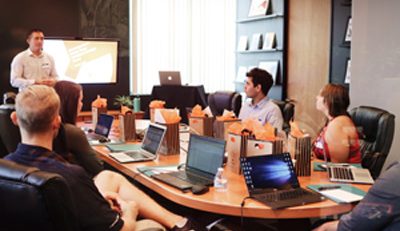How to Avoid These Four Mistakes that Can Hurt Your Federal Retirement
Do you want to retire comfortably and securely as a federal employee or annuitant? Do you want to make the most of your retirement benefits and savings? Do you want to avoid any regrets or surprises in your retirement? If you answered yes to any of these questions, then you need to be aware of some common mistakes that can ruin your federal retirement. These mistakes can affect your income, your taxes, your health care, and your happiness in retirement. These mistakes can also be hard to fix or undo once you retire. Therefore, you need to avoid these mistakes and plan ahead for your retirement. In this blog, we will reveal four mistakes that can hurt your federal retirement, and how to prevent them. We will also share some tips and best practices for planning and preparing for your retirement.
Mistake #1: Choosing an unrealistic retirement date
One of the first and most important decisions that you need to make for your retirement is when to retire. Your retirement date can have a huge impact on your retirement income, your retirement expenses, and your retirement lifestyle. Therefore, you need to choose a realistic retirement date that matches your retirement goals and your retirement assets.
A retirement date can be unrealistic if it is too early or too late for your situation. If you retire too early, you may not have enough retirement assets to fill the gaps created by the lower pension. You may also have to pay more taxes and penalties on your withdrawals from your TSP account or your social security benefits. You may also have to deal with higher health care costs and lower health insurance coverage. If you retire too late, you may miss out on the opportunity to enjoy your retirement while you are still healthy and active. You may also have to work longer than you want or need to, and face more stress and burnout.
To choose a realistic retirement date, you need to have a plan. You need to estimate how much income you will need and how much income you will have in retirement. You need to consider your FERS or CSRS pension, your TSP account, your social security benefits, and any other sources of income or savings. You also need to adjust your plan if circumstances change, such as unexpected expenses, health issues, family needs, etc. You also need to be flexible and willing to change your retirement date if necessary. Have a plan. Stick to it. Adjust if needed.
Mistake #2: Missing or relying on the catch-up provision
Another important decision that you need to make for your retirement is how much to save and invest for your retirement. Your retirement savings and investments can supplement your retirement income and help you achieve your retirement goals. Therefore, you need to save and invest as much as you can for your retirement.
One of the ways that you can save and invest more for your retirement is to use the catch-up provision. The catch-up provision is a feature of qualified retirement plans that allows you to contribute extra money to your TSP account, your 401k account, or your IRA account, starting from age 50. For 2023, the catch-up provision is $7,500 for TSP and $1,000 for IRA. You should take advantage of this provision and maximize your contributions to your retirement accounts.
However, you should not miss or rely on the catch-up provision. Missing the catch-up provision means that you are not using this opportunity to save and invest more for your retirement, and you are leaving money on the table. Relying on the catch-up provision means that you are saving and investing less in your 40s or earlier, and you are hoping to make up for it in your 50s or later. Both of these scenarios can hurt your retirement outcomes, as you may end up with less money and less time to grow your money for your retirement.
To avoid missing or relying on the catch-up provision, you need to save and invest consistently and aggressively for your retirement. You need to start saving and investing as early as possible, and increase your contributions as your income and expenses allow. You need to take advantage of the employer match and the tax benefits of your retirement accounts. You need to diversify and optimize your portfolio and your asset allocation. You need to avoid withdrawing or borrowing from your retirement accounts unless absolutely necessary. By saving and investing wisely and regularly for your retirement, you can build a large and lasting nest egg for your retirement.
Mistake #3: Claiming social security too early or too late
One of the major sources of income for your retirement is your social security benefits. Your social security benefits can provide you with a steady and reliable income that can last for your lifetime. Therefore, you need to claim your social security benefits at the right time for your situation.
Claiming your social security benefits too early or too late can be a mistake that can cost you money and income in retirement. Claiming your social security benefits too early means that you are claiming them before your full retirement age (FRA), which is between 66 and 67, depending on your year of birth. If you claim your social security benefits too early, you will receive a permanent reduction in your benefits for life. For example, if you claim your social security benefits at age 62, which is the earliest possible age, you will receive a 25% to 30% reduction in your benefits for life. Claiming your social security benefits too late means that you are claiming them after your FRA, up to age 70. If you claim your social security benefits too late, you will receive a delayed retirement credit, which is an 8% increase in your benefits for each year that you delay, up to age 70. However, you will also miss out on the benefits that you could have received if you had claimed earlier, and you may not live long enough to break even or enjoy the higher benefits.
To claim your social security benefits at the right time, you need to consider several factors, such as your life expectancy, your health, your income, your taxes, your spouse, your dependents, etc. You need to calculate your break-even point, which is the age at which the total benefits that you receive from claiming early or late are equal. You need to compare the benefits and costs of claiming early or late, and weigh the risks and rewards. You need to coordinate your social security benefits with your FERS or CSRS pension and your TSP withdrawals, and create a comprehensive income plan for your retirement. You need to do the work on this, and not rely on rules of thumb or assumptions.
Mistake #4: Wasting or losing your leave
One of the perks and benefits of being a federal employee or annuitant is your leave. Your leave can provide you with time and money for your personal and professional needs. Therefore, you need to use your leave wisely and strategically for your retirement.
Wasting or losing your leave can be a mistake that can hurt your retirement. Wasting your leave means that you are not using your leave for your benefit, such as taking vacations, taking care of your health, taking care of your family, taking care of your education, etc. Wasting your leave can affect your well-being, your productivity, your performance, and your satisfaction in your work and life. Losing your leave means that you are not using or saving your leave for your retirement, such as carrying over your annual leave, accumulating your sick leave, or cashing out your leave. Losing your leave can affect your income, your taxes, your benefits, and your retirement date in your retirement.
To avoid wasting or losing your leave, you need to have a plan. You need to know how much leave you have, how much leave you can use, how much leave you can save, and how much leave you can cash out. You need to balance your leave between your current and future needs, and between your personal and professional goals. You need to use your leave for your benefit, such as taking vacations, taking care of your health, taking care of your family, taking care of your education, etc. You need to save your leave for your retirement, such as carrying over your annual leave, accumulating your sick leave, or cashing out your leave. You need to follow the rules and limits for your leave, and avoid entering use-or-lose territory.
Here is my suggestion, if you typically use 10 days as vacation days (or just need some break days), you will have between 10 and 16 days of leave remaining. If your practice has been to save your leave for your retirement, you can continue to do so, and enjoy the benefits of having more income, more taxes, more benefits, and more flexibility in your retirement. However, if your practice has been to use your leave for your current needs, you may want to reconsider, and start saving your leave for your retirement, especially if you have a large family or a lot of debts. You may also want to keep 25% of your leave, which you can use for your benefit, without paying any extra money.
Conclusion
Retiring comfortably and securely as a federal employee or annuitant is not easy, but it is possible. You need to avoid some common mistakes that can ruin your federal retirement, and plan ahead for your retirement.




